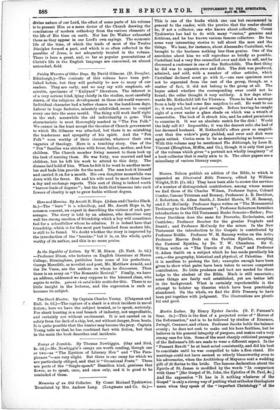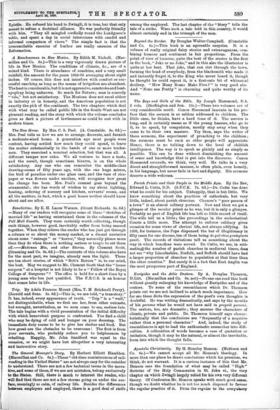Martin Luther. By Henry Eyster Jacobs. (G. P. Putnam's Sons.
(is.)—This is the first of a projected series of " Heroes of the Reformation," and is to be followed by studies of Erasmus, Zwingli, Cranmer, and others. Professor Jacobs holds the balance evenly ; he does not seek to make out his hero faultless, but he believes in his general integrity of purpose, and makes out a very strong case for him. Some of the most sharply criticised passages ( of the Reformer's life are made to wear a different aspect. In the " Peasant Revolt" he at least acted consistently, and did his best to conciliate until he was compelled to take a firm stand. His marriage could not have seemed so utterly blameworthy even to his adversaries, when the Archbishop of Mayence sent a wedding gift of 20 florins to the bride. The famous declaration about the Epistle of St. James is modified by the words "In comparison with these" [the Gospel of St. John, the Epistles of St. Paul, Ise.] And the expression "It has in it nothing whatever of the Gospel" is only a strong way of putting what orthodox theologians mean when they speak of the "imperfect Christology " of the
Epistle. He refused his hand to Zwingli, it is true, but that only meant to refuse a doctrinal alliance. He was perfectly friendly with him. "They all mingled cordially round the Landgrave's table, and spent a day in social intercourse with candid and informal comparison of views." The simple fact is that the irreconcilable enemies of Luther are really enemies of the Reformation.























































 Previous page
Previous page